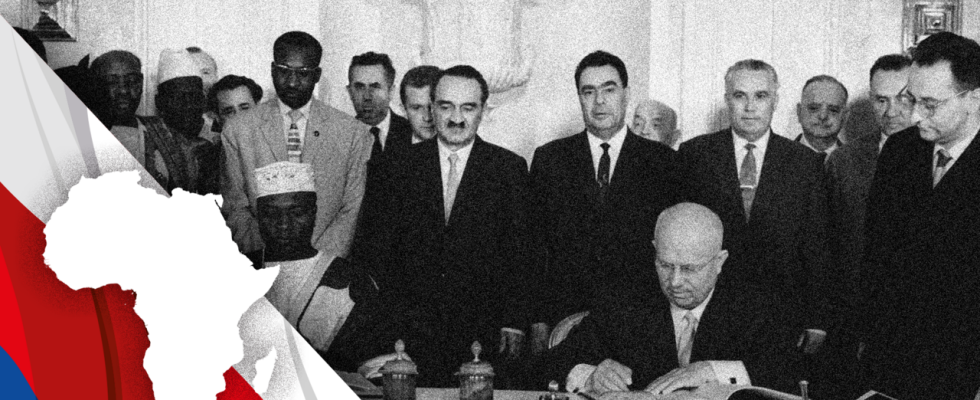In an August 1961 speech, the Soviet leader Nikita Khrushchev denounced the actions of the so-called imperialist powers in Africa. ” They are the ones who organized the bloody repression of the patriots of Congo, they who killed the national hero Patrice Lumumba “, he accuses.
It was under his leadership that the USSR launched multiple cooperation projects with the continent. Massive sales of arms and military training, dispatch of aid workers, development of infrastructure projects, scholarships, the initiatives are diverse and numerous. Thousands of students will thus attend Soviet universities.
” Immersed with Soviet students »
If for some of them, the experience is harsh, between violence and racism, this is not the case for the Congolese engineer Louis-Patrice Ngagnon, sent to Kiev in the 1970s. We received very, very good training. It was really a win-win cooperative relationship, as we left here under the most favorable conditions, because everything was within our reach. “, he remembers at the microphone of RFI. ” There was no separation. We entered into immersion with Soviet students, we did all our studies together “, insists Louis-Patrice Ngagnon.
The Congolese engineer believes that this experience has enabled his generation to train the next in the country. But if they leave with certain skills, all these students will not become a communist vanguard, as Moscow had hoped. Most of the newly independent countries will also play the competition between the two blocks, as recalled Tatiana Smirnova, anthropologist at the FrancoPaix center at the University of Quebec in Montreal.
Complex relations with the USSR
“ It should be emphasized that relations between the countries of the continent and the USSR were very complex, beyond the image of this confrontation between two blocs, between two big Brothers seeking to help the poor oppressed countries “, emphasizes the researcher. According to her, the countries of the continent have not been content to stay ” on the outskirts on the contrary, they themselves have been active. ” The leaders more or less played the card of these opposing blocks according to the opportunities of the moment “, explains Tatiana Smirnova who points to the example of Nigeria, ” a country which, at the time, played very well between these two blocks “.
From the 1980s, the USSR collapsed. Interest in the continent is eroding. The new Russia will be largely absent until the return made in recent years with a discourse recycling the Soviet narrative.
” Russia liberating from Western imperialism; this story is undoubtedly built on the soviet past », notes Tatiana Smirnova who specifies however « that we cannot say that the current relations are built from the network of former graduates from Soviet universities. A story that today finds an echo in part of African public opinion, frustrated by the failure of the unfinished democratic processes initiated at the end of the cold war.

